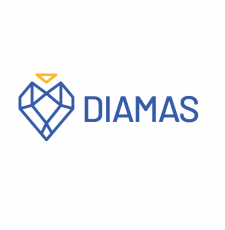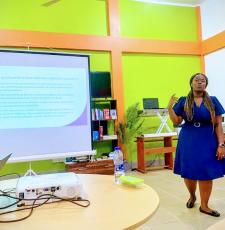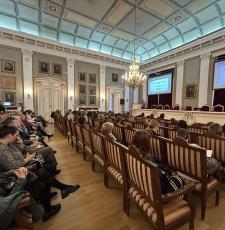
2015 was a busy year for everyone involved in promoting open access (OA) in Serbia, but results were positive, says Milica Ševkušić, EIFL’s OA Country Coordinator in Serbia.
Achievements that Serbia’s OA movement can be especially proud of include increases in the quality and quantity of OA content; a successful OA education programme for researchers and publishers, and progress in setting up institutional OA repositories.
Improving the quality of Serbian OA journals
Since 2005, Serbian Library Consortium for Coordinated Acquisition (KoBSON - EIFL’s partner consortium in Serbia) and the National Library of Serbia have mainly supported OA journals through DOISerbia, and Centre for Evaluation in Education and Science (CEON/CEES).
These projects produced good results; however, journal editors and publishers in Serbia continue to work with limited resources, and struggle to find local experts in online publishing. They share experience and learn from each other, but need new and up to date information and technical support to develop policies and ethical standards; to include and refine article-level metadata on journal websites, and to improve the quality of journal websites.
The need for further improvements in the quality of Serbian OA journals was identified during evaluations by the Directory of OA Journals (DOAJ), which provides online access to high quality, OA, peer-reviewed journals, and Scopus, an online bibliographic database of abstracts and citations for academic journal articles.
To address issues identified in these evaluations KoBSON, worked with the publishing company Elsevier to organize a workshop for editors, which took place in October 2015 at the National Library in Belgrade. For the workshop, Milica drew editors’ attention to common technical shortcomings of journal websites, and encouraged them to use Open Journal Systems (OJS) as a publishing platform. She also provided advice on how to implement Creative Commons (CC) licences and how to define a deposit policy and register it with SHERPA/RoMEO.
After the workshop, several journals decided to switch to OJS, and are improving their practices - with further support from Milica, who worked closely with the editorial offices and boards of several journals, including -
-
The journal Archives of Biological Sciences, which began using OJS and implementing suggested improvements. The editors report they are now receiving fewer poor quality submissions. Along with the journal’s Editor-in-Chief, the main person encouraging improvements was the Editorial Coordinator, Zorica Janković, who is a librarian.
-
The journal Philosophy and Society, whose application for inclusion in the European Reference Index for the Humanities and the Social Sciences (ERIH PLUS), had been rejected. Together with Biljana Albahari (also a librarian), the secretary of the journal’s Editorial Board, Milica organized several meetings with the journal’s editorial team, and KoBSON to resolve problems identified by ERIH Plus. After improvements, the journal was accepted and is now included in the ERIH Plus list.
-
The journal Materials Protection, which switched to OA in 2015. With Milica’s support, the journal policy has been defined, the CC licence has been implemented and new instructions for authors have been drafted. The journal has applied for registration with SHERPA/RoMEO and will soon apply for inclusion in DOAJ.
-
The journal Bulletin of The Institute of Ethnography SASA, which redefined its journal policy. Biljana Vuković, a librarian, who is also a member of the journal's Editorial Board, played an important role in developing this new policy.
-
The journal MD Medical Data, which has undertaken to redefine its journal policy and make some technical improvements.
Supporting creation of institutional OA repositories
Of the nine Serbian digital repositories listed in the Directory of OA Repositories (OpenDOAR), only five are institutional repositories.
In 2015, two more research institutes decided to set up digital institutional OA repositories, and approached Milica for help. The two institutes - the Institute of Economic Sciences and the Siniša Stanković Institute of Biological Research - were inspired by the success of OA repositories established in 2013 at the Institute of Technical Sciences of the Serbian Academy of Sciences and Arts (SASA) and the Institute of Philosophy and Social Theory, University of Belgrade, which both use free and open source (FOSS) software.
Following their example, the new OA repository at the Institute of Economic Sciences uses the FOSS platform EPrints, and their new repository has been launched. The repository of the Institute of Biological Research is already well developed with the support of the University of Belgrade Computer Center, and is expected to go online in 2016.
Early in 2015, the Librarians' Section of the Association of Serbian Institutes launched an educational programme for researchers. The programme incorporated OA and paid special attention to OA repositories and the benefits of self-archiving.
KoBSON’s PLANS FOR 2016
Improving OA journals
-
KoBSON plans to continue supporting editors to improve the quality of OA journals, and expects increased numbers of requests for help in 2016. An important task Milica plans in 2016 is a survey to help identify problems journal editors face. Once the survey has been completed, the aim is to host a series of workshops to address issues and challenges. The survey will also generate good practice recommendations to improve editorial policies, review process and journal websites.
Enhancing synergies between OA and Open Education
-
KoBSON is also involved in organizing a number of events for the Open Education Week (7 - 11 March 2016) in collaboration with the University Library in Belgrade, the National Library of Serbia, and the Librarians' Section of the Association of Serbian Research Institutes. The main activity will be a workshop on massive open online courses (MOOCs) at the National Library, inviting PhD students, librarians and undergraduate students. The workshop aims to encourage greater use of MOOCs.
Three other Open Education Week events include a Project Wiki Librarian event organized in collaboration with Wikipedia Serbia; an event focused on new media and OA tools in education, and an event to highlight the importance of institutional OA repositories, university libraries and education.
Establishing OA repositories
-
KoBSON will continue to support establishment of institutional OA repositories. This will mean overcoming obstacles like the poor quality and absence of libraries at some research institutes and lack of trained staff. Milica also expects to have to work hard to convince decision-makers about the value of OA repositories and to educate them about good practices.
FIND OUT MORE ABOUT EIFL’S OA WORK IN SERBIA
EIFL has supported OA in Serbia through the DOISerbia project and Centre for Evaluation in Education and Science (CEES). An important achievement of DOI Serbia was establishment of a national OA portal of PhD theses and dissertations.
In addition, EIFL supported awareness raising on OA at the University of Belgrade to encourage population of their OA repository, and helped to convert Serbian journals to OA.
SHARE / PRINT









